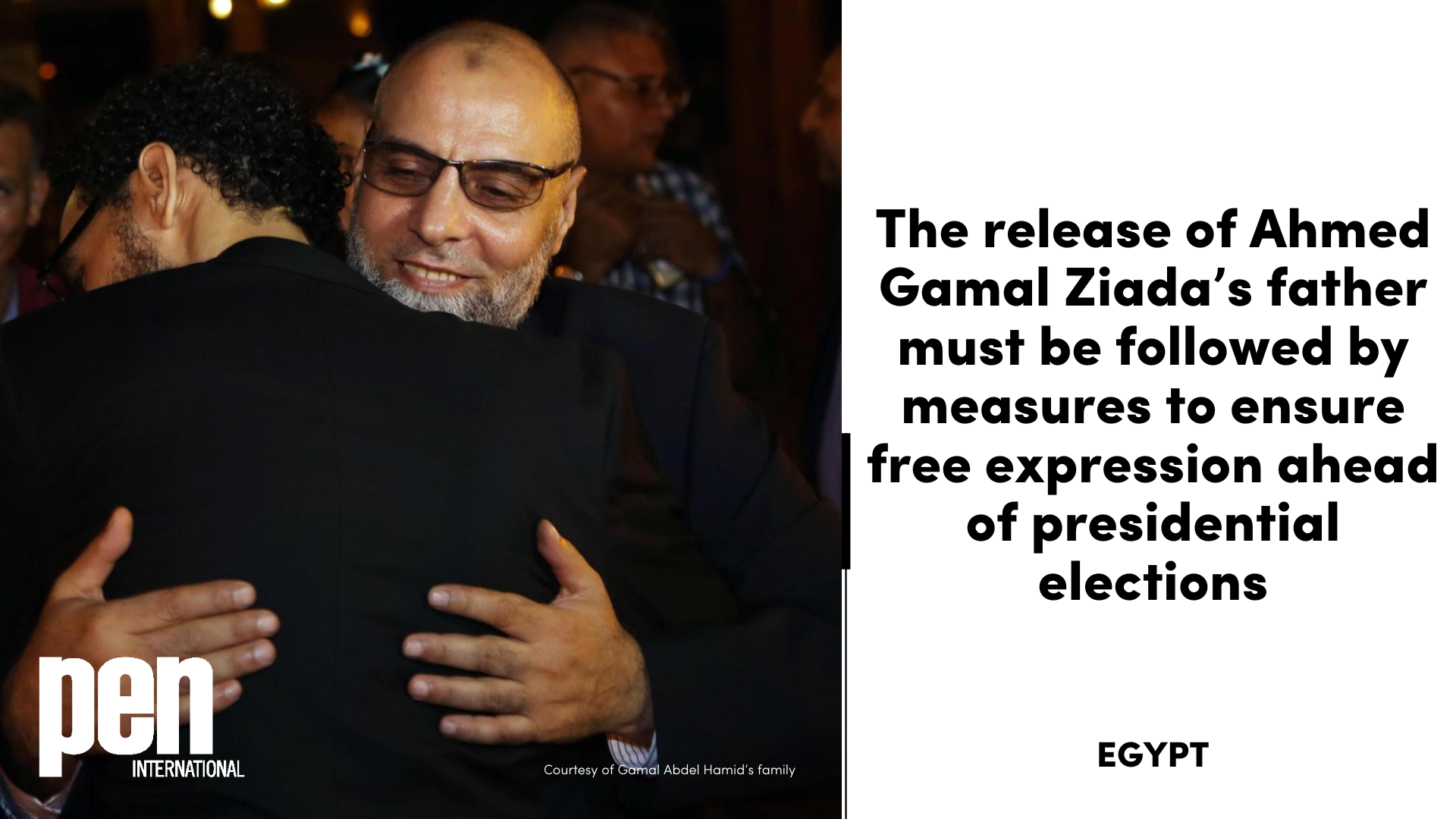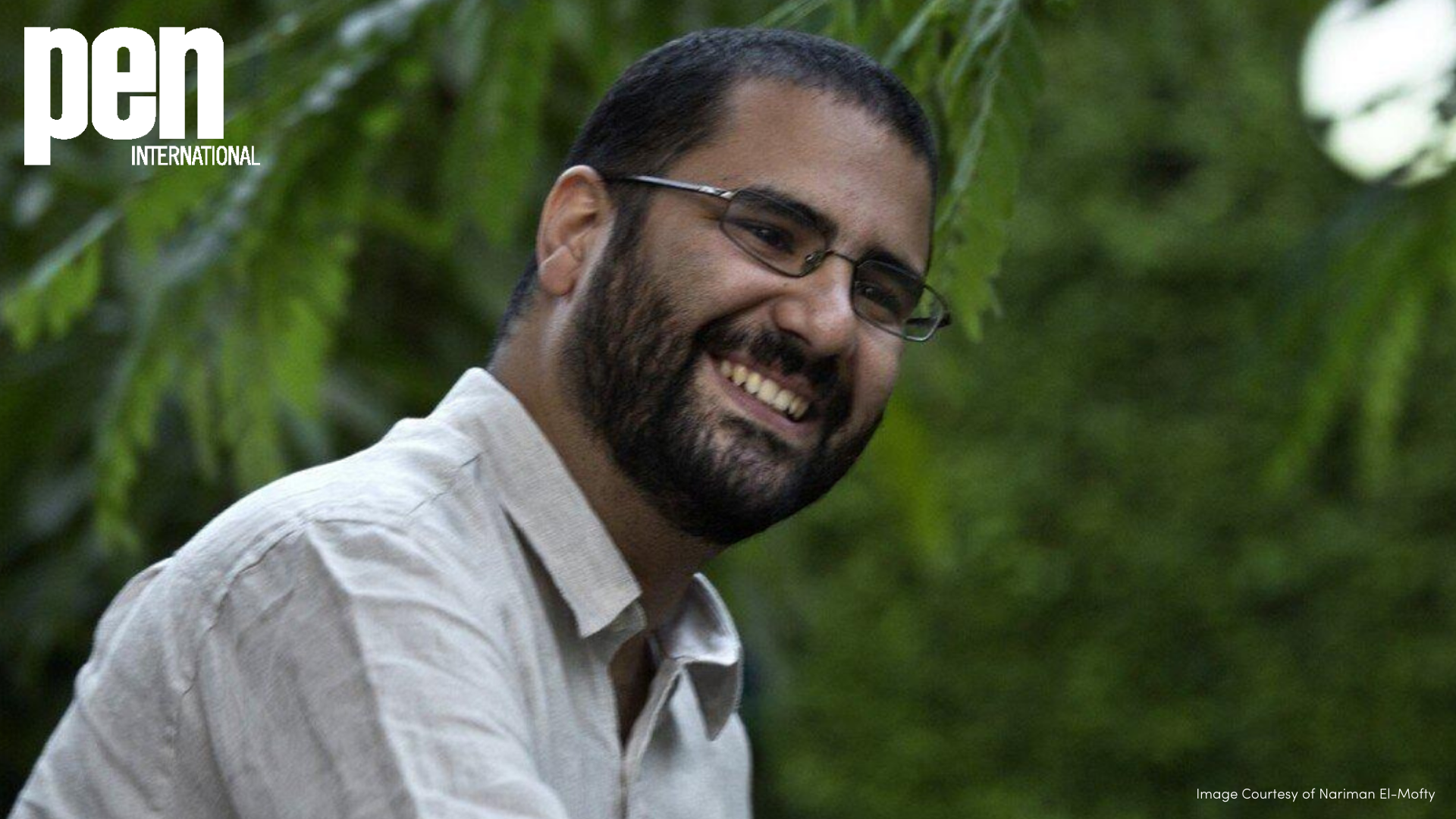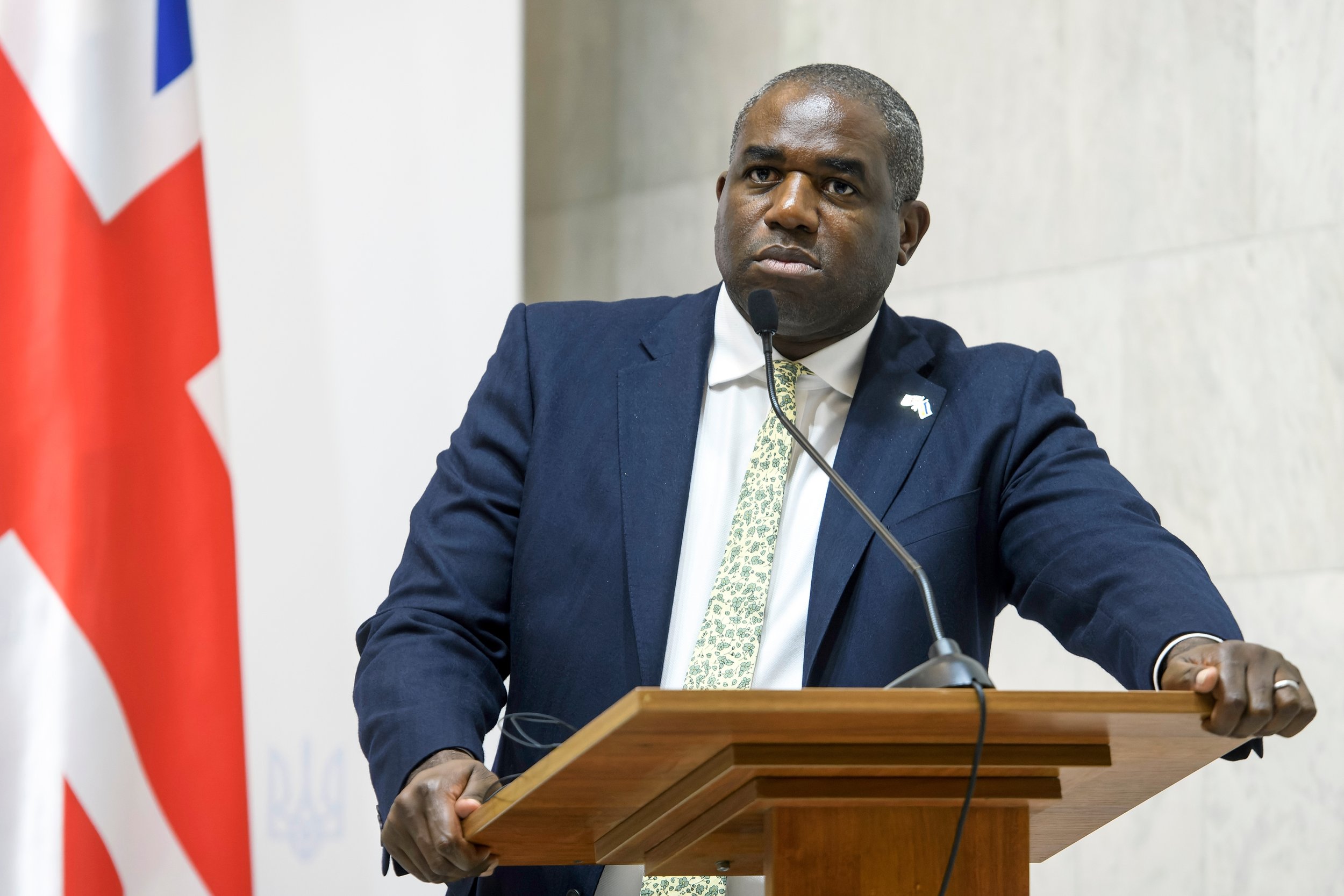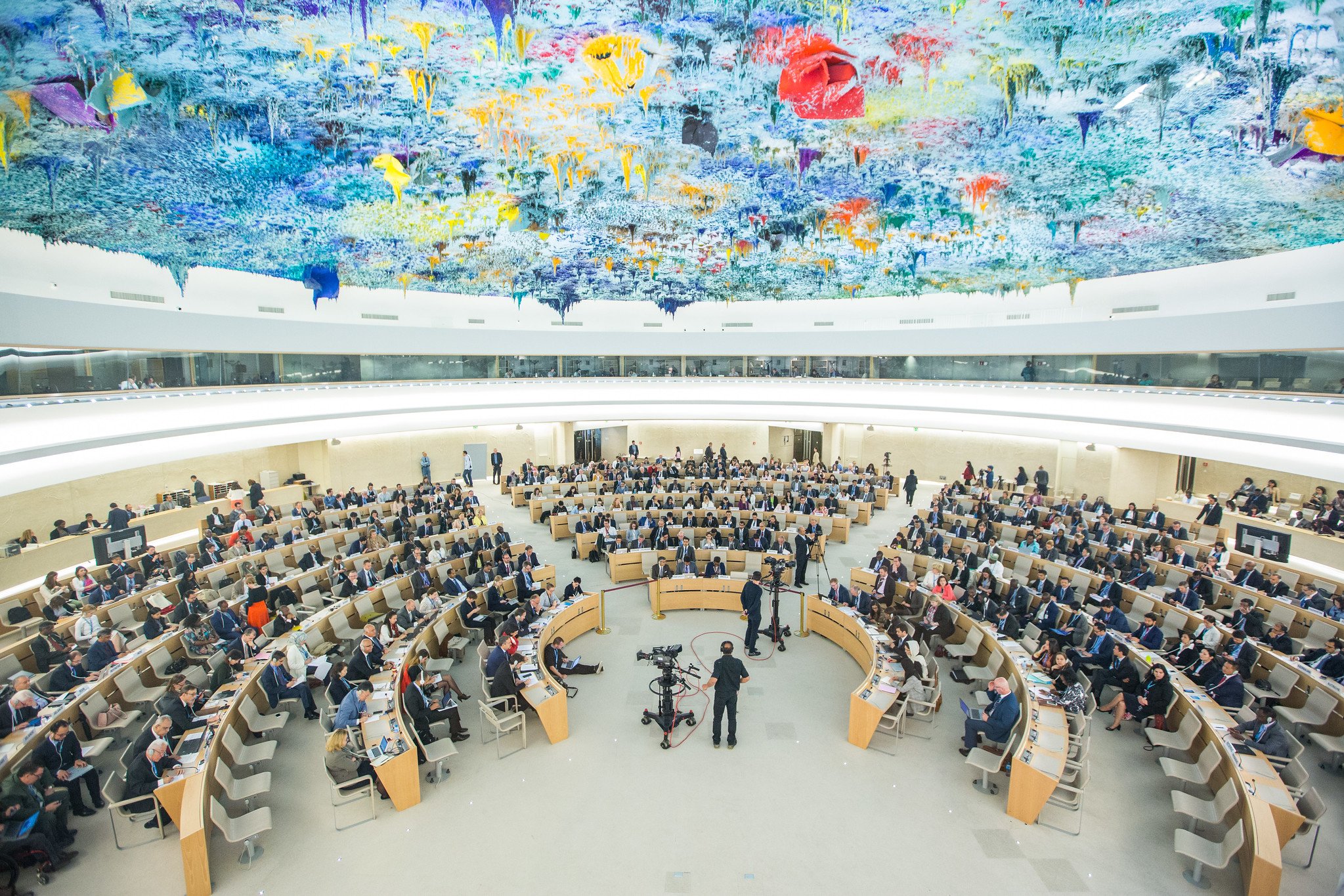Egypt: The release of Ahmed Gamal Ziada’s father must be followed by measures to ensure free expression ahead of presidential elections
Courtesy of Gamal Abdel Hamid’s family
20 September: PEN International welcomes the release of Gamal Abdel Hamid, father of exiled journalist Ahmed Gamal Ziada, and stresses that writers, including journalists, should never be at risk of national or transnational reprisals because of their work. His release comes less than two days after PEN International held a United Nations (UN) Side Event during the 54th session of the UN Human Rights Council in collaboration with English PEN, which highlighted the dire situation of freedom of expression in Egypt. The event highlighted cases of arbitrarily imprisoned writers and invited Ziada to raise awareness of the use of state reprisals against journalists by discussing his father’s case.
While Abdel Hamid’s release is a positive development, the Egyptian government must take meaningful steps to end its ongoing crackdown on freedom of expression ahead of the 2024 presidential elections.
PEN International reiterates its call for the immediate and unconditional release of all those detained in Egypt for their peaceful expression and for an end to reprisals against writers, journalists and human rights defenders, including the use of prolonged arbitrary detention.
Over recent days, Egyptian authorities have embarked on a fierce crackdown on freedom of expression and freedom of the press, charging opposition figures with defamation, arresting independent journalists, and arbitrarily detaining the family members of exiled journalists in an effort to silence them. The crackdown takes place amid preparations for the upcoming presidential elections, the fairness of which has been questioned by Egyptian human rights groups, who have raised concerns over the al-Sisi administration’s efforts to enforce a climate of fear through unrelenting repression.
Background
On 22 August 2023, plain-clothed security officers arbitrarily arrested Gamal Abdel Hamid (58), the father of exiled journalist and human rights defender Ahmed Gamal Ziada, in Nahya El Balad, Giza Governorate, and detained him at an undisclosed location. According to Ziada, his father was heavily interrogated while blindfolded and handcuffed by National Security officers who sought information regarding Ziada’s work as a journalist and his human rights activism.
Although Ziada’s father has no history of political activism or criticism of the authorities on social media, the Supreme State Security Prosecution (SSSP) ordered his pre-trial detention on charges of “spreading false news”, “misusing social media”, and “belonging to a banned group”. During the virtually held detention renewal session on 30 August, Ziada’s father told the prosecutor that he had done nothing wrong and that he was being imprisoned to intimidate his son. He also told the lawyers to ask his son not to return to Egypt. The prosecutor extended his pre-trial detention for a further 15 days. Since his arrest, Gamal Abdel Hamid has not been allowed to privetly communicate with his family or see his lawyers.
Ahmed Gamal Ziada is an exiled journalist, human rights defender, and editor-in-chief of Zawia3 (Third Angle), a newly established independent news service that provides information on political and social issues in Egypt. Ziada was arrested and arbitrarily detained in 2013 while filming police violence against protesters at Al-Azhar University in Cairo. He spent about 16 months in pre-trial detention, where he was reportedly subjected to torture and ill-treatment before he was acquitted of all charges and released in April 2015. He was rearrested in January 2019 at Cairo International Airport and taken into incommunicado detention for 14 days before facing charges of “publishing and broadcasting fake news.” He was released on bail in April 2019 and allowed to travel for studies in December 2019.
Since President al-Sisi seized power in 2014, the country's human rights situation has continually deteriorated. However, since he decided to run for a second term in 2018, the country has slipped into an unprecedented human rights crisis. Egyptian authorities continue to systematically punish any perceived public dissent and severely repress the rights to peaceful assembly, association and freedom of expression. Scores of journalists, bloggers, human rights defenders and activists have been arbitrarily arrested, detained for prolonged periods without trial, and faced with trumped-up charges in retaliation for their work or critical views.
For more information, please contact Mina Thabet, Head of the MENA Region, at: [email protected]




